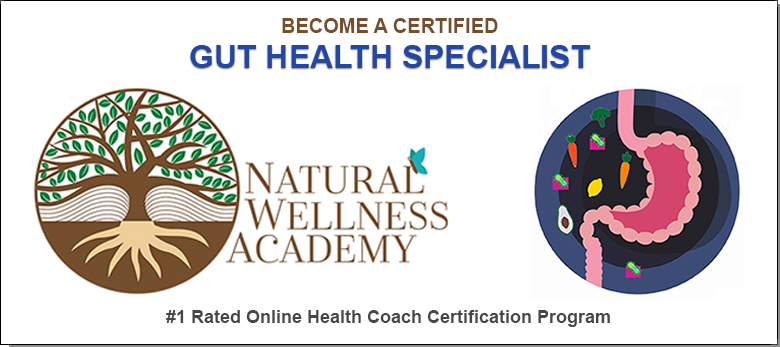
In today’s fast-paced world, many of us grapple with fatigue and moodiness, often without understanding their underlying causes. The mind-gut connection offers a fascinating insight into how our mental well-being is closely linked to our digestive health. By exploring the intricate relationship between our brain and gut, we can uncover effective strategies to reduce fatigue and enhance our mood.
Contents
Understanding the Mind-Gut Connection
The mind-gut connection involves a complex interplay between the brain and the digestive system, influencing our mental and emotional states. This relationship is mediated through various biochemical and neural pathways, making it a critical aspect of our health.
Definition And Components
The gut-brain axis is the term used to describe the bidirectional communication between the gut and the brain. This axis involves multiple systems, including the central nervous system, the enteric nervous system, and the endocrine and immune systems.
The Gut-Brain Axis
The gut-brain axis is a complex network that connects the emotional and cognitive centers of the brain with peripheral intestinal functions. It includes various pathways, such as the vagus nerve, hormonal signaling, and immune system mediators.
Role Of Neurotransmitters
Neurotransmitters are chemicals that transmit signals across a synapse from one neuron to another. In the context of the mind-gut connection, neurotransmitters like serotonin and dopamine, which are crucial for mood regulation, are significantly produced in the gut.
How The Gut Affects Mental Health
Understanding how the gut influences mental health involves looking at the role of the gut microbiome and its impact on the production of neurotransmitters.
Gut Microbiome
The gut microbiome is a collection of trillions of microorganisms living in our digestive tract. These microbes play a vital role in digesting food, regulating the immune system, and producing important chemicals that the brain uses to function properly.
Production Of Serotonin And Dopamine
A significant portion of serotonin, a key neurotransmitter involved in mood regulation, is produced in the gut. Similarly, dopamine, which plays a role in how we feel pleasure, is also influenced by gut health. An imbalance in the gut microbiome can affect the levels of these neurotransmitters, leading to issues like depression and anxiety [1].
Causes of Fatigue and Moodiness
Fatigue and moodiness are often symptoms of deeper issues. Identifying the common causes is the first step towards finding solutions that can enhance your energy levels and stabilize your mood.
Common Causes
Several common factors can contribute to feelings of fatigue and moodiness. These include psychological, lifestyle, and dietary elements that impact our daily lives.
Stress And Anxiety
Stress and anxiety are significant contributors to both fatigue and moodiness. When the body is under constant stress, it enters a state of heightened alertness, which can be exhausting over time. Chronic anxiety also depletes mental and physical energy, leading to feelings of tiredness and irritability.
Poor Diet And Nutrition
The food we consume plays a crucial role in our energy levels and mood. Diets high in processed foods, sugars, and unhealthy fats can lead to nutritional deficiencies that contribute to fatigue and mood swings. A lack of essential nutrients can affect brain function and overall energy.
Lack Of Sleep
Quality sleep is essential for restoring energy and maintaining a balanced mood. Insufficient sleep can disrupt the body’s natural rhythms, leading to chronic fatigue and emotional instability. Poor sleep hygiene or conditions like insomnia can severely impact how we feel during the day.
Gut-Related Causes
Beyond the common factors, there are specific gut-related issues that can influence fatigue and moodiness. The health of our digestive system is closely linked to our overall well-being.
Imbalance In Gut Microbiota
An imbalance in the gut microbiota, known as dysbiosis, can affect the production of essential neurotransmitters and lead to inflammation. This imbalance can disrupt the communication between the gut and brain, resulting in fatigue and mood disorders [2].
Inflammation And Leaky Gut Syndrome
Inflammation in the gut can cause a range of health issues, including fatigue and moodiness. Leaky gut syndrome, where the gut lining becomes permeable, allows toxins and bacteria to enter the bloodstream, triggering an immune response. This condition can lead to chronic inflammation, affecting both physical energy and mental clarity.

The Impact of Diet on the Mind-Gut Connection
Dietary choices can either support or disrupt the balance of the gut microbiome. By focusing on gut-friendly foods and avoiding harmful ones, we can strengthen the mind-gut connection and improve our overall health.
Nutritional Elements For A Healthy Gut
Certain foods and nutrients are essential for maintaining a healthy gut. These elements support the growth of beneficial bacteria and contribute to a balanced gut microbiome.
Probiotics And Prebiotics
Probiotics are live beneficial bacteria that can be found in fermented foods like yogurt, kefir, sauerkraut, and kimchi. These foods help populate the gut with healthy microbes, enhancing gut health. Prebiotics, on the other hand, are non-digestible fibers found in foods like garlic, onions, leeks, asparagus, and bananas. They serve as food for the beneficial bacteria in the gut, promoting their growth and activity.
Fiber And Fermented Foods
Dietary fiber is crucial for gut health because it helps maintain regular bowel movements and feeds the good bacteria in the gut. High-fiber foods include fruits, vegetables, legumes, and whole grains. Fermented foods, which are rich in probiotics, also play a significant role in maintaining a healthy gut microbiome. Regular consumption of these foods can improve digestion and boost the immune system [3].
Foods To Avoid
Just as some foods support gut health, others can harm it. Avoiding certain foods can prevent gut imbalances and reduce the risk of fatigue and moodiness.
Processed Foods And Sugars
Processed foods and refined sugars can disrupt the balance of the gut microbiome by promoting the growth of harmful bacteria. These foods often contain artificial ingredients and lack the nutrients necessary for a healthy gut. High sugar intake can lead to inflammation and an overgrowth of harmful microbes, negatively affecting both gut and mental health.
Artificial Additives And Preservatives
Artificial additives and preservatives found in many processed foods can irritate the gut lining and disrupt the microbiome. Ingredients like artificial sweeteners, colorings, and preservatives can cause inflammation and negatively impact gut health. Reducing consumption of these additives can help maintain a healthier gut environment.
Strategies to Improve Gut Health and Enhance Mood
There are several effective strategies to maintain and improve gut health. These strategies include making dietary changes, adopting lifestyle modifications, and considering supplementation to support a healthy gut microbiome.
Dietary Changes
Making conscious dietary choices is one of the most effective ways to improve gut health. These changes can positively impact the gut microbiome and, in turn, enhance mood and energy levels.
Incorporating Gut-Friendly Foods
Adding more gut-friendly foods to your diet can significantly improve the health of your gut microbiome. Foods rich in probiotics, such as yogurt, kefir, sauerkraut, and kimchi, introduce beneficial bacteria to the gut. Prebiotic foods, like garlic, onions, leeks, asparagus, and bananas, provide nourishment for these beneficial bacteria. Including a variety of fruits, vegetables, whole grains, and legumes in your diet ensures a high intake of dietary fiber, which is crucial for maintaining a healthy gut.
Reducing Inflammatory Foods
Certain foods can cause inflammation in the gut and disrupt the balance of the microbiome. Reducing the intake of processed foods, refined sugars, and artificial additives can help decrease inflammation and support a healthier gut environment. Opting for whole, unprocessed foods can minimize exposure to harmful substances that negatively impact gut health [4].
Lifestyle Modifications
In addition to dietary changes, adopting healthy lifestyle habits can further support gut health and improve mood. These modifications include stress management techniques and regular physical activity.
Stress Management Techniques
Chronic stress can have a detrimental effect on gut health and overall well-being. Incorporating stress management techniques, such as mindfulness meditation, yoga, deep breathing exercises, and progressive muscle relaxation, can help reduce stress levels and promote a healthier gut. Ensuring adequate sleep and engaging in hobbies or activities that bring joy can also mitigate the negative impacts of stress.
Regular Physical Activity
Regular physical activity is beneficial for both physical and mental health. Exercise helps stimulate the digestive system, promoting regular bowel movements and enhancing gut function. It also supports the growth of beneficial gut bacteria. Aim for a combination of aerobic exercises, strength training, and flexibility exercises to achieve optimal health benefits.
Supplementation
In some cases, supplementation can provide additional support for gut health. Probiotics and omega-3 fatty acids are two supplements that have been shown to benefit the gut microbiome and overall well-being.
Probiotic Supplements
Probiotic supplements can help restore and maintain a healthy balance of gut bacteria. These supplements contain live beneficial bacteria that can enhance gut health, improve digestion, and support the immune system. It’s important to choose high-quality probiotic supplements with strains that are well-researched and known to be effective.
Omega-3 Fatty Acids
Omega-3 fatty acids, found in fish oil and certain plant-based oils, have anti-inflammatory properties that can benefit gut health. These fatty acids help reduce inflammation in the gut and support the growth of beneficial bacteria. Including omega-3-rich foods in your diet or taking supplements can provide these benefits.
References
[1] Gut feeling: how your microbiota affects your mood, sleep and stress levels
[2] Gut microbiota’s effect on mental health: The gut-brain axis
[3] Turns out your ‘gut feelings’ are real. How gut and mental health are connected
[4] Brain-gut connection explains why integrative treatments can help relieve digestive ailments

